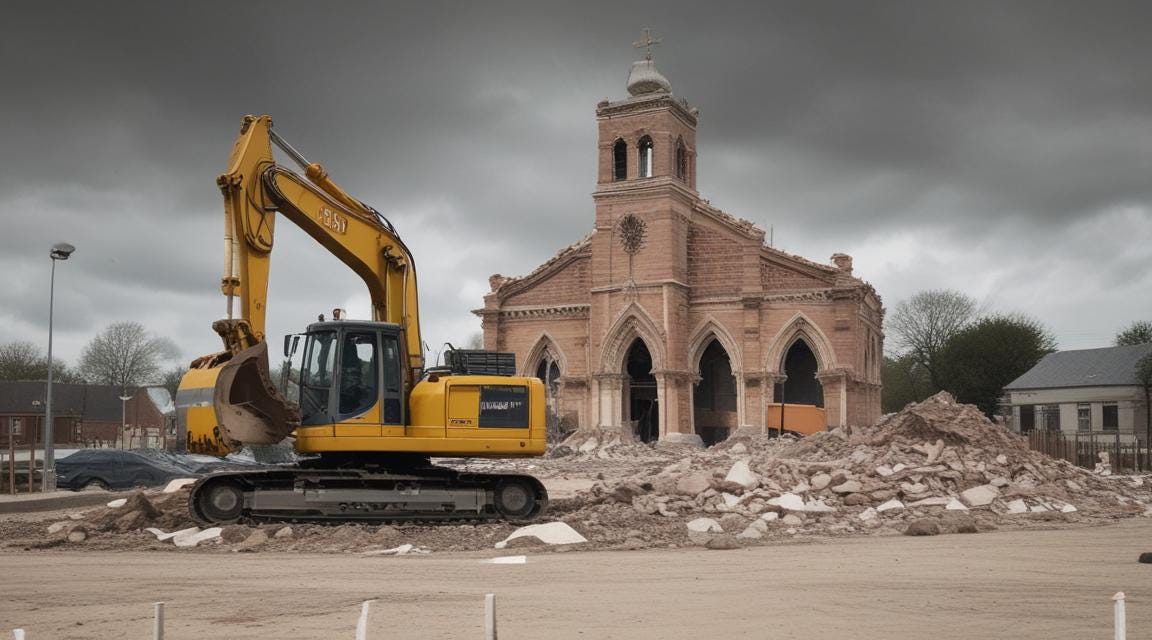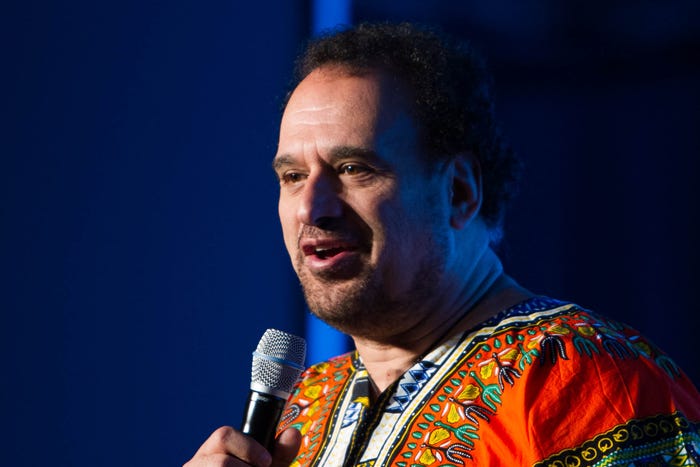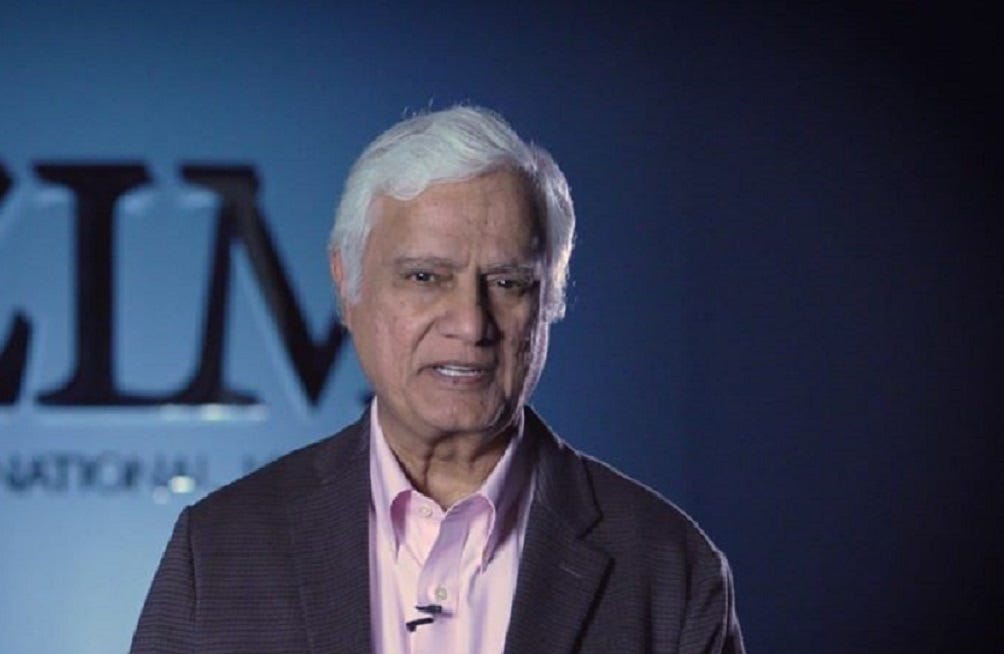The safeguarding heresy
We must resolutely reject safeguarding to be a healthy, Biblical church
Over the last year or so I have thought and written substantially about safeguarding. In this post I would like to bring this to some kind of conclusion (at least for now), and outline where I have ended up in my thinking. Essentially, I believe that safeguarding is not only wrong but dangerously wrong for the church. The word ‘heresy’ gets thrown around a lot, and I appreciate that it may not be technically correct to use the word here. But I do believe that safeguarding, as it is practised by churches today, is outside the bounds of orthodoxy and should be firmly resisted by churches.
Many orthodox churches have been rightly concerned about the push for same-sex marriage within the church. But I believe that safeguarding is at least as significant an issue — it touches on a core doctrine, and it is legally required of clergy that they follow church safeguarding procedure. Safeguarding should be as big an issue, if not more so, yet most churches do not even see the problems with it. As I have said repeatedly, the gospel is sufficient for safeguarding. The fact that we feel safeguarding is necessary in the first place is a huge red flag that the church has problems.
Let me start with my personal experience, which has been the starting point for the rest of my thinking.
My experience of safeguarding
On 31st March last year, I had a call from the vicar of the church we were in at the time. He said that someone had made a “serious allegation” about me, and asked me to meet him and the church’s pastoral care coordinator. I went that evening, and they told me that they had referred the matter to safeguarding and… well, they couldn’t tell me much else. I couldn’t know who had made the allegation, or what the allegation was. A few days later, the bishop came to my door personally to deliver a letter taking away my Permission to Officiate. I’ve never felt so much that I was “guilty until proven innocent”!
Just to give you a snapshot of how bad things are - I still haven’t been told what I was actually accused of. I have in fact heard absolutely nothing from the safeguarding team. I have even heard through the grapevine that, because I left the church, the whole thing might have been quietly dropped without letting me know.
The thing that really struck me about it all was it was just so cold and procedural. An allegation had been made, these were simply the steps that needed to be followed. As I said, clergy are legally required to follow safeguarding procedure — regardless of what the Bible has to say.
Much has been written about the flaws of the Church of England safeguarding process, and I don’t want to cover that here. I am deeply critical of the safeguarding process, however I do not wish to get distracted from the issue at hand. The fundamental problem is not with the safeguarding process, the problem is with the safeguarding mindset. The safeguarding mindset is a horrible distortion of the gospel.
This is why I felt the need to resign almost immediately from the church: not because I was unhappy with the safeguarding process in itself, but because I believe the Bible and the gospel should come first.
What I’d like to do is outline a couple of ways that safeguarding subverts the gospel.
Sin vs safeguarding
The first thing is, I believe that safeguarding is effectively replacing the doctrine of sin. Let’s go back to what happened with Soul Survivor and Mike Pilavachi. I said in a previous post that the power dynamics were not a tangential matter to the gospel, but were fundamental to it. Christian leaders should be expected to lead in a way which models Jesus - obviously we are all fallen, so we do not live up to his standards. Nonetheless, Christian leaders should be expected to model servant leadership. When they don’t, it is a matter of sin and they need to repent.
In my experience, I felt that I was not being treated as a sinner so much as a ‘safeguarding issue.’ This matters because the Bible does not talk about safeguarding per se, but it does talk about sin. It also talks about how sin in the church should be dealt with. For example, in Matthew 18:15-20, Jesus outlines a process for how sin should be handled. Someone should be confronted with their sin and given a chance to repent, but if they do not repent they should be treated like “a pagan or a tax collector” — in other words, as a non-Christian.
In Paul’s first letter to Timothy, he expands on how an allegation against a leader should be dealt with:
Do not entertain an accusation against an elder unless it is brought by two or three witnesses. But those elders who are sinning you are to reprove before everyone, so that the others may take warning. 1 Timothy 5:19-20
Paul says that, firstly, an accusation against an elder should not be entertained without two or three witnesses. In other words, we should recognise that there may be ‘political’ motivations for troublemakers to bring accusations against someone. But, he goes on, if someone is sinning they should be reproved “before everyone” - i.e. publicly. (In contrast to the safeguarding process, where someone who makes an accusation is anonymous and the whole thing seems to happen behind closed doors. Not to mention the fact that those who make false allegations have absolutely no comeback.)
The point is, Christian leaders are not a different category to the rest of the church. If a church leader is sinning, it will probably cause bigger problems for the church than a layperson. But — sin should be treated as sin. The church must have no other category. God has not given us any other way. There are Biblical ways of dealing with sin — either someone repents, and is received back into fellowship; or they do not repent, and should be treated as a non-Christian.
Everything should be done with love — with love for the one who sinned, and love for the one who has been sinned against. (And with a recognition that both parties involved are sinners - more on that in a moment.)
This holds for every example of safeguarding in the church that I can think of. Returning to the example of Mike Pilavachi, what he did was not a ‘safeguarding issue’: it was sinful. It was an offence to a holy God. We cannot understand what happened without understanding this basic truth. Mike Pilavachi didn’t do what he did because he wanted to be a safeguarding issue. He did it because of sinful beliefs, sinful patterns of thought, leading to sinful behaviour. As James puts it:
… each person is tempted when they are dragged away by their own evil desire and enticed. Then, after desire has conceived, it gives birth to sin; and sin, when it is full-grown, gives birth to death. James 1:14-15
Does the church not recognise or acknowledge these truths any more? Are these words not true for church leaders? Are they only true for certain circumstances?
The problem is, if we don’t recognise the deeply offensive and serious nature of sin, we will treat it with a wink and a nudge until someone gets hurt. That is exactly what has happened with Mike, and with others. Sin seems to get a free pass until it becomes a safeguarding issue. Does nobody see that this is so far from the way the church is meant to be?
if we don’t recognise the deeply offensive and serious nature of sin, we will treat it with a wink and a nudge until someone gets hurt.
The theologian Richard Niebuhr once described liberal theology like this:
“A God without wrath brought men without sin into a Kingdom without judgement through the ministrations of a Christ without a Cross.”
Although he was talking about liberal theology, I think he could effectively be talking about much of the church today — including evangelicals. I believe that churches who buy into safeguarding do so because they have moved towards Niebuhr’s caricature of the liberal gospel, especially when it comes to sin. If the church is to make any headway with safeguarding, as a matter of urgency it needs to rediscover the Biblical gospel.
Sinners vs victims
The second aspect of safeguarding which is undermining the gospel is the way it makes people into victims. You could see this in the Let There be Light documentary (which I talked about here) — all the interns Mike abused were described as ‘victims.’ What’s the problem with that, you might say — weren’t they victims?
I have talked about this previously, where I said:
The more I see safeguarding at work, the more uncomfortable I am with the dynamics of victim / abuser. The Bible says we are all both victims and abusers: all have sinned and fall short of the glory of God. We all deserve God’s judgement for the way we have treated others. As I said before, this is not to minimise sin in any way, but rather to say that the safeguarding process forces an unhealthy and unbiblical way of looking at the problem before you’ve even started.
The problem with designating some people victims is that it absolves them of any blame. The safeguarding process, virtually by design, divides people into victims and abusers. However, the truth is rarely this simple.
If I may return to the Mike Pilavachi situation again as a convenient example: as far as I know, almost all the interns Mike was said to have wrestled were over 18. That is, they were adults. The police said that nothing illegal had happened — they were not physically forced to wrestle or receive massages. So, why did these interns not use some of their agency as adults and simply leave? Some of them in the documentary said they “idolised” Mike. Well, what does the Bible have to say about idolising people? Were they not acting sinfully by idolising? What about the people who looked the other way, who glossed over it and said it was “just Mike”? They were acting sinfully, too.
Please understand that I am not trying to overlook the dynamics of power and how difficult it must have been for those interns to say ‘no’ or even tell someone. Rather, the point I am trying to get at here is that as soon as you describe someone as a victim, you have judged them to be innocent. ‘They are a victim, they are innocent, that is the end of the matter.’ But this is rarely ever the case.
Take another example - Lori Anne Thompson. She was abused by Ravi Zacharias, who persuaded her to have an affair with him. What should we make of this? She was a married woman. She had stood up, presumably in church, and promised to her husband to be faithful. Did she not understand the promises that she was making? Did Ravi’s influence override her moral decision-making responsibility, to the point that she couldn’t be considered able to make a decision? I don’t know how Ravi managed to convince her, but he didn’t force her - surely she must be accountable at some level for the decision that she made? Even if people like Ravi, and Mike, hold the greater responsibility.
Let me be clear: I am not arguing that the people described as victims have equal guilt and responsibility. I think those in positions of power do have a greater responsibility, and should share the larger part of the blame.
What I am trying to say is that if the whole church was thinking more about ‘sin’ and less about ‘safeguarding’, we wouldn’t be having this conversation. Doing what is godly and right means standing up to abusers and bullies and not letting yourself be abused - even by a well-known Christian leader. If we as a church started thinking in the Biblical categories of sin and repentance for everyone, this would totally change the culture of the church. And that alone is going to solve the safeguarding problem.
Is there a place for safeguarding in the church?
Let me finish by asking the question of whether there is any place for safeguarding in the church. I have to be honest and say - no, I don’t think there is. If something truly dangerous is going on (e.g. sexual abuse or child abuse), it should already be illegal. If it is illegal, then it should be handled by the appropriate channels - e.g. the police / social services / etc.
If it is immoral but not illegal, then it should be handled as a matter of sin. That doesn’t mean treating it any less seriously, in fact quite the opposite: it means treating it as a matter of utmost severity.
As I have tried to stress throughout my pieces about safeguarding, dealing with these things as sin is not giving them a free pass! Dealing with these things in a Biblical way, from the perspective of sin and repentance, is taking them much more seriously than safeguarding does.
If we want a healthy, godly, Biblical church, then we need to ditch safeguarding.







Thank you, Phill for these recent articles on safeguarding. I found them very thought provoking as I haven’t thought of safeguarding within the church in terms of sin. But then I haven’t really thought about safeguarding and the church at all. On your recommendation I have also read some of Francis Schaeffer’s writings. It has left me with much to think about and pray about for myself and the Church that we will read God’s Word as God’s Word and it will renew our thinking and our living.